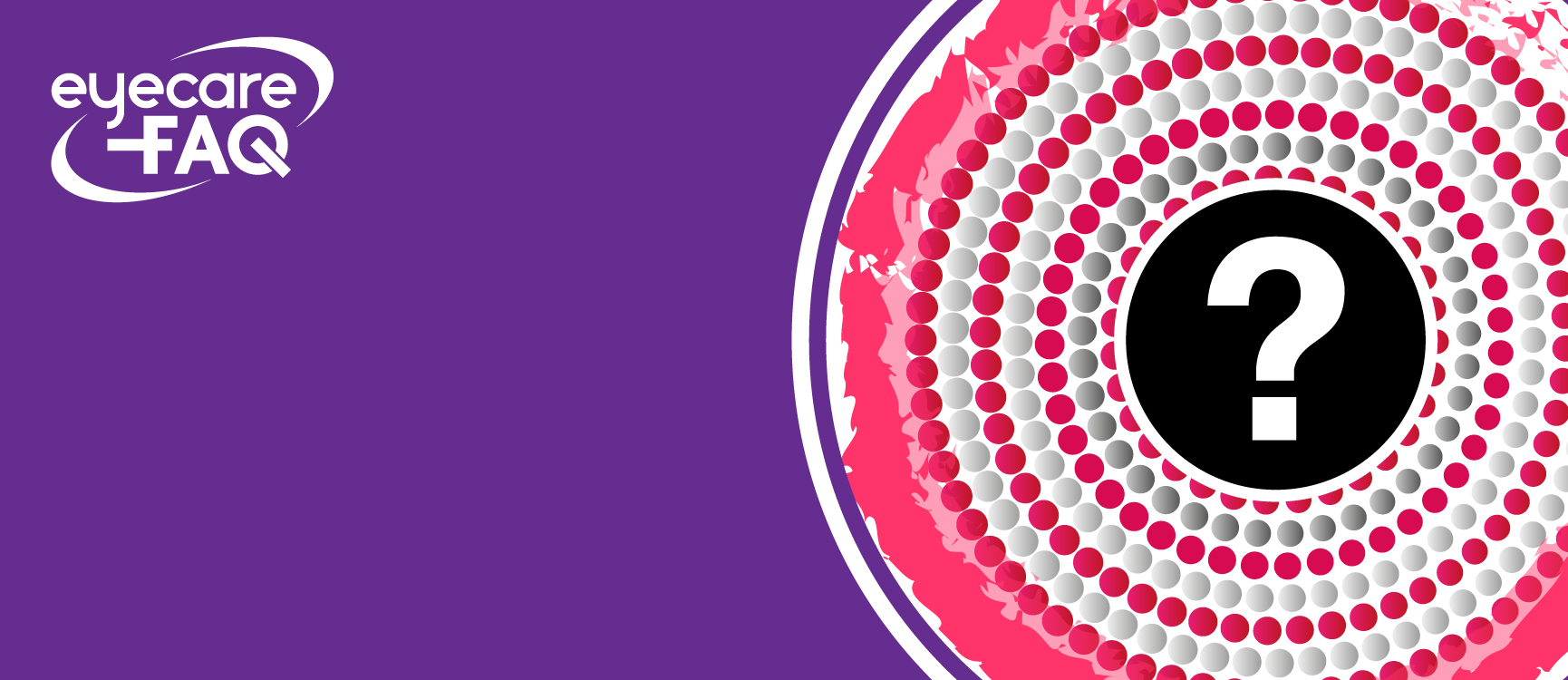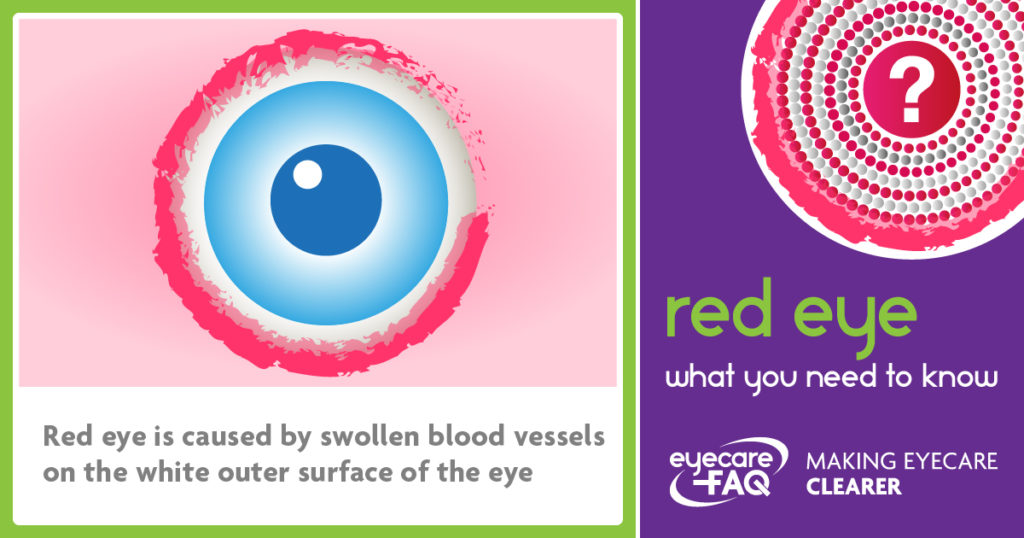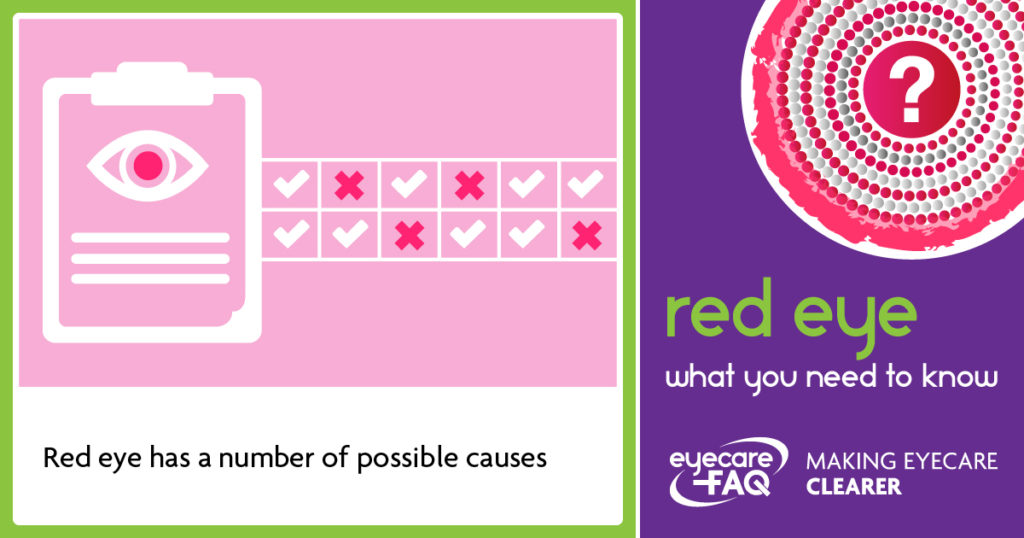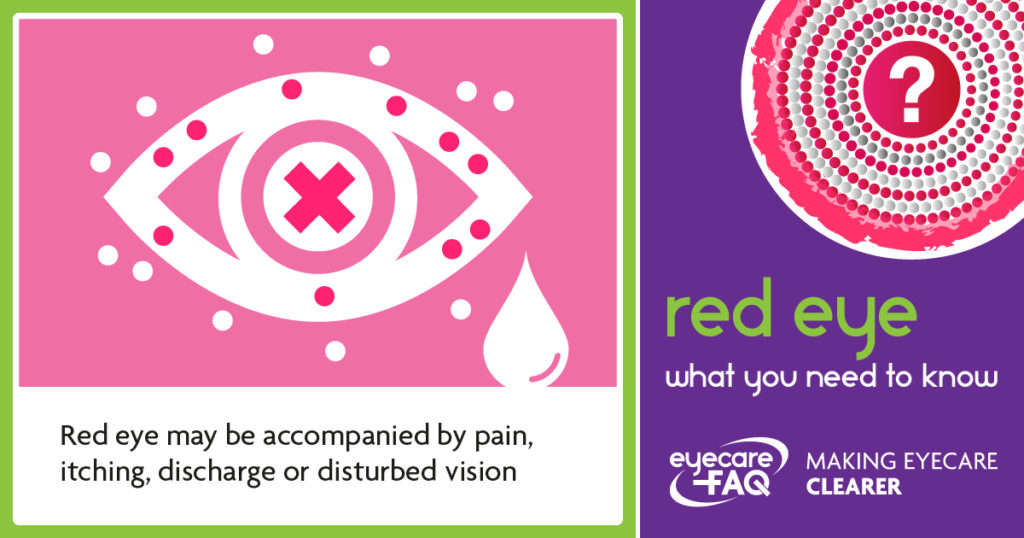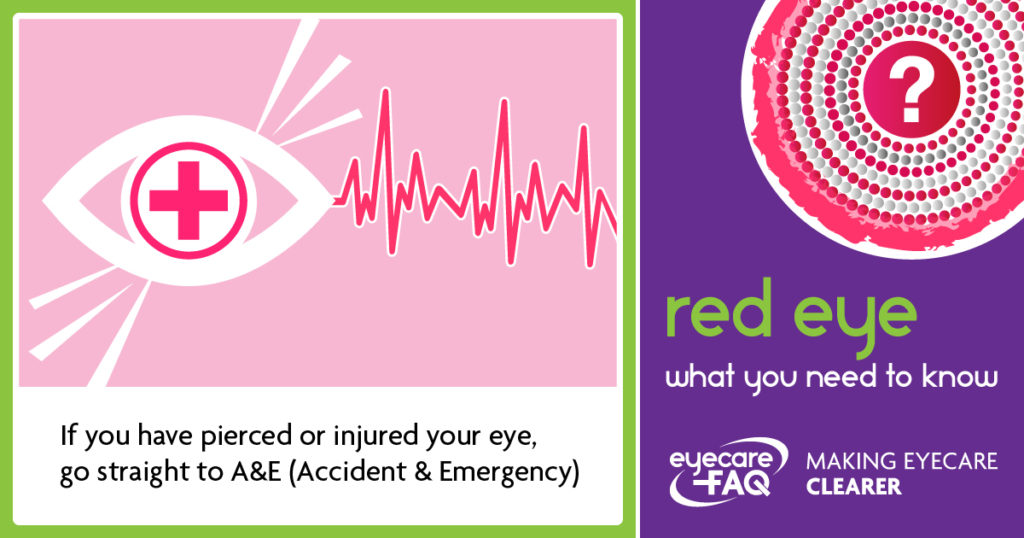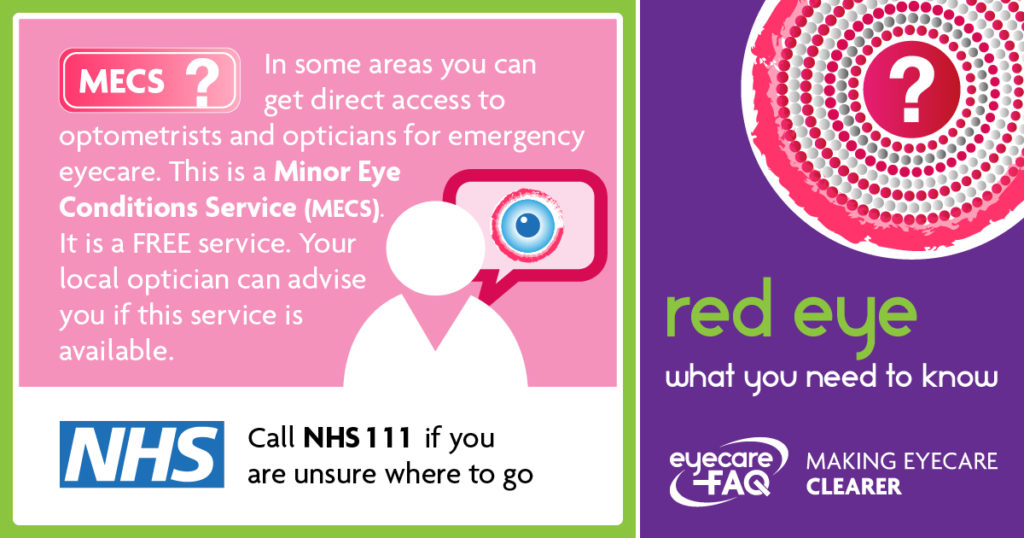What is red eye caused by?
Red eye is caused by swollen or dilated blood vessels on the white outer surface of the eye. It has many possible causes. You may also have pain, itching, discharge or visual disturbances. If you are concerned about your red eye, the best first step is to consult your optical practice or failing this seek medical advice. In some areas you can also access a Minor Eye Conditions service at local optical practices free of charge on the NHS.
The white part of my eye is bright red but it doesn’t hurt. What has happened?
A bright red painless eye could be a subconjunctival haemorrhage. A tiny blood vessel in the sclera, the white part of your eye may have broken, causing a thin layer of blood to leak out across the sclera, underneath the clear conjunctiva that covers the whole eye. This could have been caused by straining, coughing or injuring your eye. It looks alarming, and can appear worse if you’re taking medication like aspirin or warfarin as these reduce the blood’s ability to clot. It is not usually serious. This type of red eye should clear up on its own within a few weeks as the blood reabsorbs. The blood may change colour as it reabsorbs. If you are concerned about your red eye, the best first step is to consult your optical practice or failing this seek medical advice. In some areas you can also access a Minor Eye Conditions service at local optical practices free of charge on the NHS.
The local opticians is offering a Minor Eye Condition Service. What is this?
A Minor Eye Conditions’ Service (MECS) is a NHS service that allows local opticians and optometrists to check minor, recent eye problems. You can call in to a MECS if you have a red eye or eyelids, irritated, gritty or uncomfortable eyes, a sticky discharge, a painful eye, issues with eyelashes, recent and sudden loss of vision or a foreign body in the eye. MECS are available in some but not all parts of the UK. It is not suitable for people who are already having eye conditions treated or monitored at the hospital. Ask your local optician if they offer this service.
Find out more about MECS here.
My eye is red and very painful. What should I do?
If your eye is red and painful you should seek advice as soon as possible from your optical practitioner, or failing this seek medical advice. In some areas you can also access a Minor Eye Conditions service at local optical practices free of charge on the NHS. You can also access a hospital eye emergency service, depending on what operates in your area.
I have woken up with a red, gungy, sticky eye. What should I do?
This may be conjunctivitis, a common infectious eye disease. Bacteria or viruses irritate the conjunctiva, the clear layer that covers the front of your eye. There are different types of conjunctivitis so you should get advice before treatment, from your regular optician, from a Minor Eye Conditions service at your local optical practice or your GP depending on what operates in your area. Find out more about treating conjunctivitis here.
My eyes are always a little bit red and irritated, and it gets worse at the end of the day. What could this be?
Many people find, particularly as they get older, that their eyes feel dry and irritated. This can be worse on waking or increase as the day goes on. Speak to an optician as there are lots of different ways to improve dry eye. Some optician practices provide specific “dry eye appointments” outside their NHS work. You can read more about dry eye here.
My eyes are red and itchy. What could this be?
Some people find their eyes are itchy at certain times of year, when they go outdoors, and/or when they come into contact with animals. These can all be signs that you have an allergy. Look for your local Minor Eye Conditions service, or speak to an optician as they can examine your eyes and advise on treatments for eye allergies.
I’m a contact lens wearer and my eyes are red and sore. What should I do?
If you have your lenses in, remove them. Red eye can be a sign of an infection or irritation, so make an appointment with your contact lens optician as soon as you can. If your pain/redness gets worse quickly you should seek emergency help via a Minor Eye Condition series or Hospital Eye Emergency.
I have injured my eye and it is red and painful. What should I do?
If you have scratched your eye or have a foreign body or irritant in it, it can be very painful. If the pain and irritation persists, seek help as soon as possible, either from a Minor Eye Conditions service at your local optical practice, your GP or the hospital eye emergency service, depending on what operates in your area. You can call NHS 111 for advice too, or find your nearest accident and emergency (A&E) department here.
I’ve got a sore red eye, haloes around lights, my vision isn’t great. What should I do?
This could be a sign of acute onset glaucoma, a sudden rise in pressure inside the eye. The pain my be severe enough to make you feel sick or unwell If you have these symptoms you need to visit your local accident and emergency department as soon as possible. You can call NHS 111 for advice or find your nearest accident and emergency (A&E) department here.
How do I prevent red eyes?
If you are worried about red eyes, remember to try to avoid rubbing them. This can make the situation worse. Practice good hygiene and wash your hands, particularly if you are a contact lens wearer. Some eyedrops claim to reduce the signs of red eyes, but in fact with long term use they can make the problem worse. If you are concerned about red eyes, seek advice from a Minor Eye Conditions service at your local optical practice if one operates in your area. If you have not had a recent eye examination, book an appointment for a check-up.
I’ve had a red eye for a few days and it’s not getting better. What should I do?
There are many causes of red eye, so it is important to get help from a professional. If you are concerned about red eye, ask for advice, either from a Minor Eye Conditions service at your local optical practice, or your GP.
